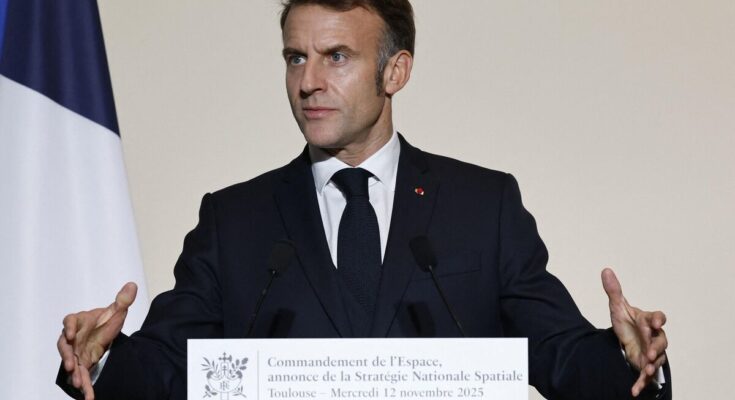This is primarily a response to Russian threats. President Emmanuel Macron this Wednesday announced an additional investment of 4.2 billion euros for French space defense by 2030.
While outlining France’s new space strategy for 2040, the Head of State specifically advocated the future development of reusable European launchers to gain competitiveness against Elon Musk’s SpaceX. “Today’s war has been fought in space and tomorrow’s war will start in space,” said the French president in Toulouse (Haute-Garonne), at the headquarters of his recently inaugurated Space Command. “Space is no longer a refuge, but has become a battlefield,” he stressed.
Russian “nuclear” threat in space?
“We have had espionage, for example by Russia, against our satellites with patrol ships, massive interference with GPS signals, cyber attacks on our space infrastructure, anti-satellite missile tests, the development of anti-satellite weapons (…) and even the very surprising threat of Russian nuclear weapons in space,” he explained.
To address these challenges, he announced that he intends to allocate an additional 4.2 billion euros of the 6 billion euros already planned for military space by 2030, as part of an update to the military programs law. It added “more than 16 billion euros for the French civil space, including dual activities” (civil and military), he added.
However, this amount is far below the 35 billion euros that German Defense Minister Boris Pistorius promised to invest by 2030 in German space defense to counter Russian and Chinese military capabilities. Therefore, France risks putting itself in a weak position during the ESA ministerial conference scheduled in Bremen, Germany, on November 26 and 27.
“Reuse” and “low cost drive”
Emmanuel Macron also called for a move away from the European Space Agency’s (ESA) “geographic return” principle which guarantees that each member state gets back, in the form of industrial contracts, a share of investments proportional to its contribution to the agency’s budget, two weeks before the ESA ministerial council which will set the budget for the next three years. This principle “had its justification and utility at one time, but we must now turn the page” so that “our European champions are competitive”, he stressed.
He also called for developing future space launchers “with reuse, low-cost propulsion, high-thrust motorization” and “modernizing” the European space base at Kourou, in French Guiana, “to make it an agile place, open to small launchers and foreign partners”. We must “improve the operation of Ariane 6 whose competitiveness must be increased,” he stressed.



